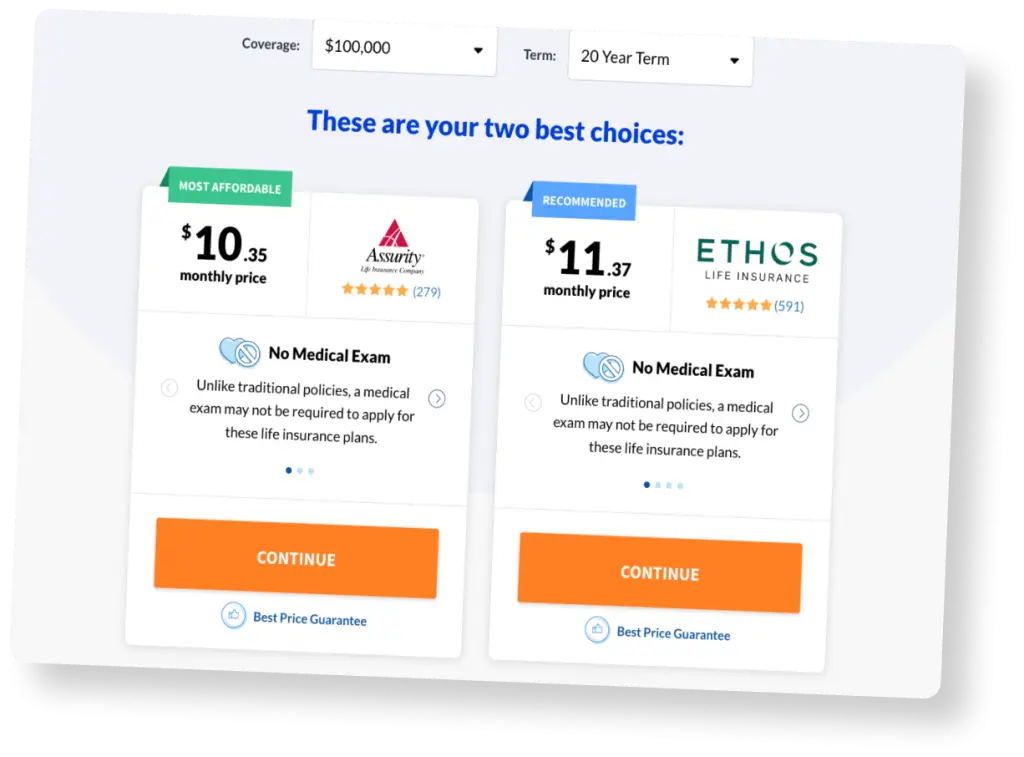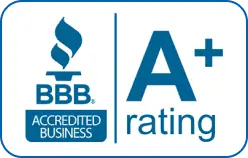Key man insurance, also known as key person insurance, is vital for businesses of all sizes. It provides financial protection if a crucial employee, such as a top executive or owner, passes away or becomes disabled. This type of insurance ensures that the business has a financial safety net to help maintain operations during a difficult time.
There are different types of key man insurance policies available, catering to various needs. These include life and disability insurance, which can be customized based on the specific risks a business faces. Companies can choose from term, whole, and universal life insurance policies, each with its unique benefits and costs.
Key Takeaways of Types of Key Man Insurance Policies
- A key person insurance policy provides financial protection to businesses if a crucial employee passes away or becomes disabled.
- Purchasing key person insurance helps companies safeguard against unexpected financial disruptions and maintain stability.
- The key person insurance cover payout can be used for hiring replacements, paying debts, or covering lost revenue.
- Unlike other life insurance policies, key person insurance benefits the company rather than an individual’s family.
- A key person policy ensures that the business owns the coverage, giving it control over financial planning and risk management.
Key Man Insurance
Key man insurance offers financial security to businesses by insuring important team members. This type of business insurance helps ensure that a company can continue operations smoothly even if a key person is no longer able to work.
Definition and Purpose
Key man insurance, also known as key person insurance or key employee life insurance, is a life insurance policy purchased by a business on a key employee. These individuals are often the owners, top executives, or employees critical to a company’s success. The insurance policy provides a payout to the business if that key person passes away, which helps cover potential financial losses. This payout can be used to hire and train a replacement, settle debts, or maintain operations.
Key man insurance is important for companies that rely heavily on one or more individuals for their success. It offers peace of mind to business owners by protecting the financial health of their company.
The Importance for Business Continuity
Maintaining business continuity is crucial when dealing with the loss of a key person. Key man insurance aids in this by providing a financial buffer to ensure the company can operate without major disruptions. Without this type of insurance, the sudden absence of a critical team member may lead to financial instability and operational challenges.
By securing key person insurance, businesses can prepare for unexpected events, allowing them time to regroup and strategize for the future. This type of business insurance is vital for businesses of all sizes, ensuring that the company’s operations remain steady and that stakeholders, including employees and clients, maintain confidence in the company’s stability.
Types of Key Man Insurance Policies
Businesses often use different types of key man insurance to protect against financial loss if a crucial member is lost. These policies can include term life insurance, permanent life insurance, and universal life insurance. Each type offers unique benefits based on company needs, cost, and the desired level of coverage.
Term Life Insurance
Term Life Insurance is a popular choice for businesses seeking protection for a specific period. This type of life insurance policy provides coverage for a set number of years, usually ranging from 1 to 30 years. If the insured key person passes away within this term, the company receives a death benefit.
Term insurance is often more affordable than other options, making it appealing for businesses seeking short-term protection without high costs. Renewing or converting the policy at the end of the term may be possible, but premiums might change. It’s ideal for covering temporary financial obligations such as loans or vital projects.
Permanent Life Insurance
Permanent Life Insurance offers coverage that lasts for the lifetime of the insured key person. There are variations, such as whole life insurance, that provide both a death benefit and a cash value component. This cash value grows over time and could be used by the company for various purposes, like funding a buy-sell agreement.
This type of insurance can be more expensive than term insurance, but it guarantees a payout since it does not expire as long as premiums are paid. Many businesses prefer this for long-term financial planning, especially if the key person is integral to the business’s ongoing success.
Universal Life Insurance
Universal Life Insurance combines the benefits of long-term coverage with flexible premium payments and death benefits. The cash value aspect of this insurance allows businesses to adjust payments and grow the policy’s value. Businesses can potentially use this cash value to cover unexpected expenses or invest back into the company.
Universal life insurance offers flexibility, which is beneficial if the company’s finances or needs change over time. The initial costs may be higher, but the adaptability and potential cash accumulation make it a strategic decision for companies requiring ongoing financial protection.
The Financial Mechanism of Key Man Insurance
Key man insurance is an important financial tool for businesses. It helps protect the company against financial losses if a key person dies or is unable to work. This section looks at how key man insurance works, focusing on the sum assured, death benefit, and payment of premiums.
Sum Assured Concept
The sum assured is the amount of money that the policy pays to the business if the insured key person passes away or is disabled. This figure is critical because it determines the coverage extent that the business can rely on during unexpected events.
Calculating the sum assured involves considering several factors like the key person’s contribution to the revenues and their role in future projects. Depending on these factors, the business can choose an adequate sum that would help them manage financial challenges without the key person.
Choosing the right sum assured is crucial. If it’s too low, the company may struggle financially. If it’s too high, they might pay unnecessary high premiums, affecting their cash flow. A balanced approach reflecting the key person’s true value to the company is ideal.
Death Benefit and its Significance
The death benefit is the cornerstone of any life insurance policy, including key man insurance. It provides financial support to the business upon the death of the insured individual.
This benefit is paid out to the business as a lump sum and can cover several needs such as recruiting and training a replacement, repaying loans, or stabilizing finances during a difficult transition period. This helps ensure the company remains operational and can maintain its market position.
The significance of the death benefit cannot be overemphasized. It provides security and resources to manage unforeseen events, giving reassurance to the company’s shareholders and clients about the stability and continuity of operations during tough times.
Premium Payments and Their Calculations
Premium payments are what the business pays to maintain the key man insurance policy. These payments vary based on factors such as the sum assured, the age and health of the insured individual, and the policy’s terms.
Insurers use actuarial calculations to determine the premium amount, which is generally paid on a monthly or yearly basis. Businesses should evaluate their budget to decide the most feasible payment schedule without affecting cash flow negatively.
Understanding premium payments is crucial as they directly impact the business’s finances. Well-structured premium plans aligned with the company’s budget will help in sustaining the policy while ensuring adequate coverage.
Benefits of Key Person Insurance for Businesses
Key person insurance plays a crucial role in safeguarding businesses from financial challenges. It provides essential support to maintain operations smoothly when a significant employee is no longer able to work. This insurance offers businesses a way to secure financial stability, protect against profit reduction, and add value to employee benefits.
Securing Financial Stability
Key person insurance provides financial protection for businesses when a vital employee can no longer contribute due to death or disability. This coverage helps ensure that companies have the financial means to continue operations without significant disruption. By covering expenses like loan payments and operational costs, companies can focus on adapting to changes.
Having this insurance can also provide peace of mind to business owners and stakeholders. Investors and potential partners often view companies with key person insurance more favorably since it reduces the perceived risk involved. This protection can also help businesses secure loans or credit more easily, as lenders see a lower likelihood of a financial crisis.
Protecting Against Profit Reduction
A sudden loss of a key employee can lead to significant profit reduction. Key person insurance offers a financial safety net that helps offset these potential losses. The funds from the policy can cover the cost of hiring and training a replacement, which can be a costly and time-consuming process.
This insurance can also help businesses navigate the period of adjustment by stabilizing cash flow and operations. It cushions the company against the economic impact of losing crucial knowledge, skills, and relationships that the key person brought to the business. By ensuring business continuity, companies can maintain client trust and preserve their market position.
Contributing to Employee Benefits
Key person insurance can be part of a broader strategy to enhance employee benefits. Offering such coverage demonstrates a company’s commitment to protecting its long-term interests, including the welfare of its valuable employees. This insurance can be viewed as an acknowledgment of the employee’s critical role within the organization.
For employees, knowing that their company values them so highly can improve job satisfaction and loyalty. It gives peace of mind that the business is well-prepared to address unexpected challenges. This can help attract and retain top talent, as potential employees look favorably on companies with comprehensive benefits packages.
Analyzing the Role of Key Man Insurance in Employee Insurance Strategies
Key man insurance plays a critical role in protecting businesses from the financial impact of losing essential employees. It helps businesses prepare for unexpected situations by integrating with employee insurance strategies. Key areas include group life insurance arrangements, collateral for loans, and support during employee disability.
Group Life Insurance Inclusion
Including key man insurance as part of a company’s group life insurance can provide added security for businesses. This integration helps cover the financial loss a business might face if a vital employee dies. By combining with group life insurance, companies ensure that they have the necessary funds to continue operations smoothly. This approach not only benefits the business but also provides peace of mind to the insured employee and their family.
Key person insurance varies in coverage based on the employee’s role and value. Businesses can adjust the policy terms to match these factors. This customization ensures the protection mirrors the specific needs and financial exposure of the company when integrating key person coverage with group life insurance plans.
Collateral Assignment for Business Loans
Using key man insurance as collateral for business loans can be crucial when a key employee is involved. Lenders prefer this arrangement to secure loans, knowing the policy provides an extra layer of financial protection. In the event of the key person’s death, the insurance payout can be used to pay off the outstanding loan balance.
This type of collateral assignment enables companies to obtain better loan terms and conditions. It demonstrates financial prudence to lenders, showing that the business has plans to mitigate potential risks. Additionally, it reassures stakeholders that the company is prepared for unforeseen circumstances affecting crucial personnel.
Key Person Disability Insurance
Key person disability insurance safeguards a business against the financial aftermath of a key employee becoming disabled. This coverage offers financial stability while the company adapts to the loss of the employee’s contributions. While key person life insurance covers death, disability insurance tackles the risk of losing productivity due to disability.
This insurance supports the firm’s finances by covering costs associated with hiring and training a replacement. It ensures the workplace remains productive and orderly. Businesses can choose policy terms reflecting specific roles within the company, further tailoring solutions to the risks associated with specific positions.
Frequently Asked Questions about Types of Key Man Insurance Policies
How Does Key Man Insurance Differ from a Standard Life Insurance Policy?
Key man insurance is bought by a business on an important employee. Unlike standard life insurance, which pays benefits to the family, this insurance pays the business. It helps cover costs like lost profits or hiring temporary replacements and is an important tool for businesses wanting to protect their financial stability.
What Are The Potential Tax Implications for a Key Man Life Insurance Policy?
The premiums paid on a key man life insurance policy are generally not tax-deductible. However, the death benefit received is typically tax-free for the business. Understanding these tax details is essential for effective financial planning within the company, as they can affect accounting and tax responsibilities.
Is Key Person Insurance Tax Deductible for Businesses?
While businesses often hope to deduct key person insurance premiums, this expense is generally not allowed to be deducted from taxable income. It’s crucial for companies to factor these costs into their budgets, knowing they won’t receive tax benefits from the premiums paid.
What Happens to Key Employee Insurance Coverage If The Insured Employee Resigns or Is No Longer With the Company?
If the insured employee leaves, the company usually cancels the policy or can transfer it to the employee. If canceled, the business stops making premium payments and coverage ends. Occasionally, continuing the policy may be considered if renewing makes strategic sense for potential future risks.
Conclusion and Summary of Types of Key Man Insurance Policies: What are They?
A key person insurance policy is an essential safeguard for businesses that rely on specific individuals for success. Whether a company is purchasing key person insurance for an owner, executive, or other crucial employee, the financial protection it provides ensures stability in times of uncertainty. If a key employee dies, the payout from the key person insurance cover can help the business recover from potential financial setbacks, allowing time to hire and train a suitable replacement.
Unlike other life insurance policies, which primarily benefit families, this type of business life insurance ensures that the business owns the policy and can use the funds strategically. A well-structured key person policy offers peace of mind, allowing companies to focus on long-term growth while mitigating risks tied to the loss of essential personnel.
trusted by 5,000+ clients
Get Personalized Quotes Tailored to Your Company’s Needs














